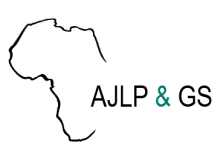Resource information
Climate change poses serious challenges to the sustainability of fisheries and aquaculture systems, with severe implications for the majority people who depend on them largely for their livelihoods. Therefore, this study investigates factors influencing the vulnerability of fishing activities to climate change among artisanal fisher-folks in coastal area of Lagos, Nigeria. A three-stage random sampling technique was used to select 342 artisanal fishers from the study area. Data were collected with the aid of structured questionnaire and subjected to factor analysis and descriptive statistics. The results of data analysis revealed that artisanal fishers are vulnerable to external shocks (climate change) due to their high reliance on fishing activities with occupational pluralism being considered as risk-reduction mechanism. Factor analysis revealed that socioeconomic, occupational activities, social cohesion/organization, and market opportunities and biodiversity conservation policy factors among fishers, with Eigen values of 2.2532, 1.5713, 1.3314, and 1.1024 respectively, accounted for their vulnerability to change in climate. The study recommends proper sensitization and capacity building among the coastal fishers on the threats of climate change to their fishing activities.


